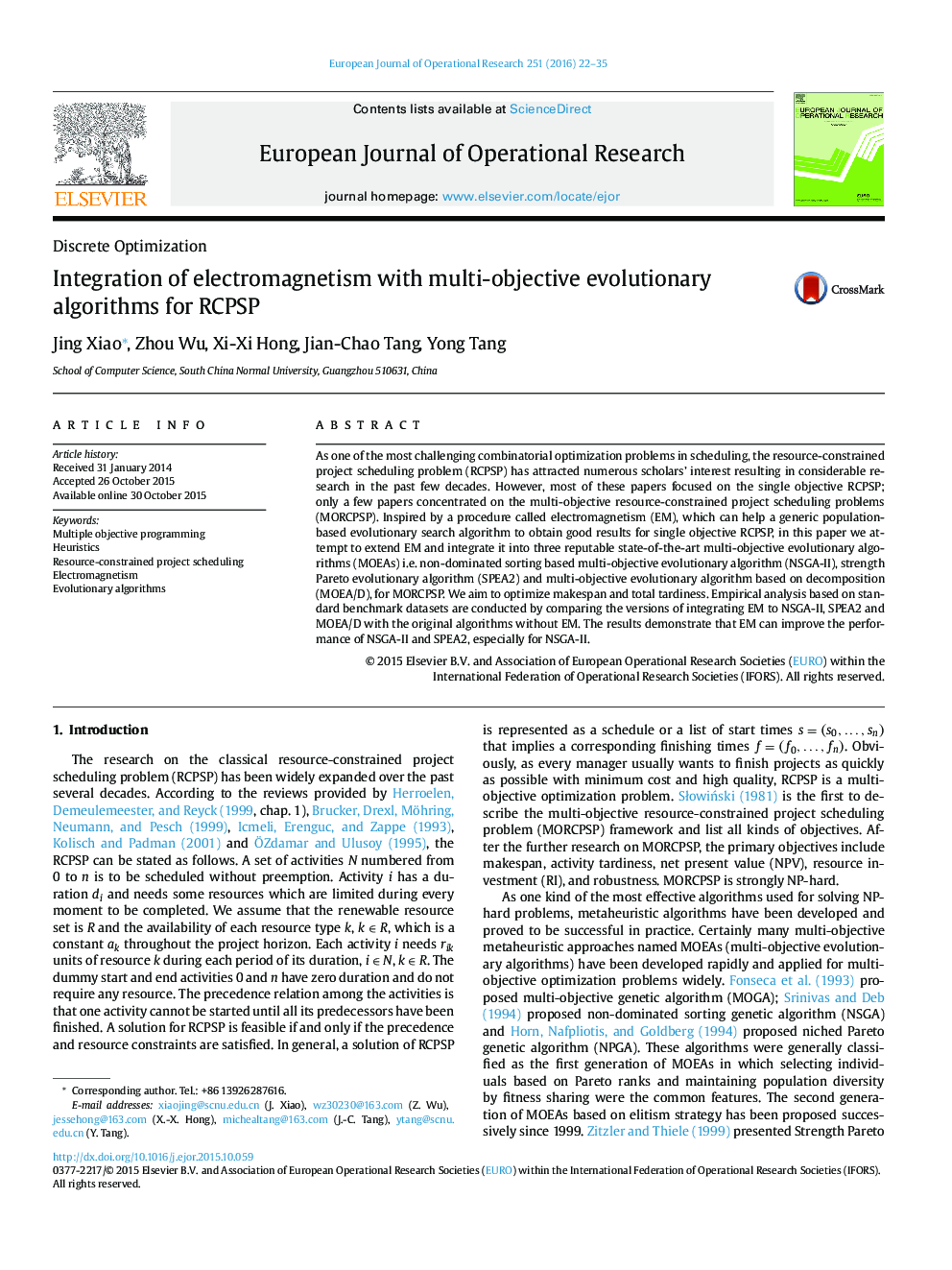| Article ID | Journal | Published Year | Pages | File Type |
|---|---|---|---|---|
| 480625 | European Journal of Operational Research | 2016 | 14 Pages |
•Electromagnetism (EM) is integrated with multi-objective evolutionary algorithms (MOEAs).•Performance of EM integration to NSGA-II, SPEA2 and MOEA/D for RCPSP is compared.•Employment of EM to NSGA-II is the most effective.•EM does not improve the performance of MOEA/D on RCPSP.•Explanation of why EM heuristics plays different roles in the studied algorithms is given.
As one of the most challenging combinatorial optimization problems in scheduling, the resource-constrained project scheduling problem (RCPSP) has attracted numerous scholars’ interest resulting in considerable research in the past few decades. However, most of these papers focused on the single objective RCPSP; only a few papers concentrated on the multi-objective resource-constrained project scheduling problems (MORCPSP). Inspired by a procedure called electromagnetism (EM), which can help a generic population-based evolutionary search algorithm to obtain good results for single objective RCPSP, in this paper we attempt to extend EM and integrate it into three reputable state-of-the-art multi-objective evolutionary algorithms (MOEAs) i.e. non-dominated sorting based multi-objective evolutionary algorithm (NSGA-II), strength Pareto evolutionary algorithm (SPEA2) and multi-objective evolutionary algorithm based on decomposition (MOEA/D), for MORCPSP. We aim to optimize makespan and total tardiness. Empirical analysis based on standard benchmark datasets are conducted by comparing the versions of integrating EM to NSGA-II, SPEA2 and MOEA/D with the original algorithms without EM. The results demonstrate that EM can improve the performance of NSGA-II and SPEA2, especially for NSGA-II.
